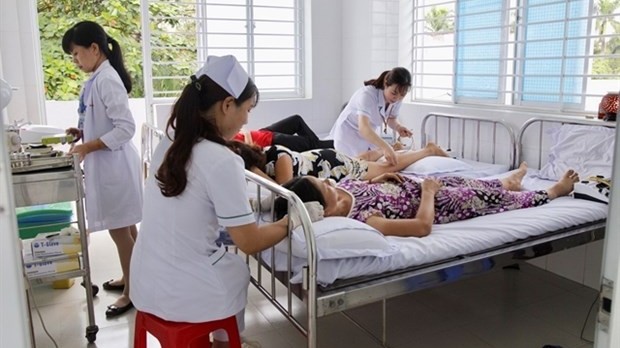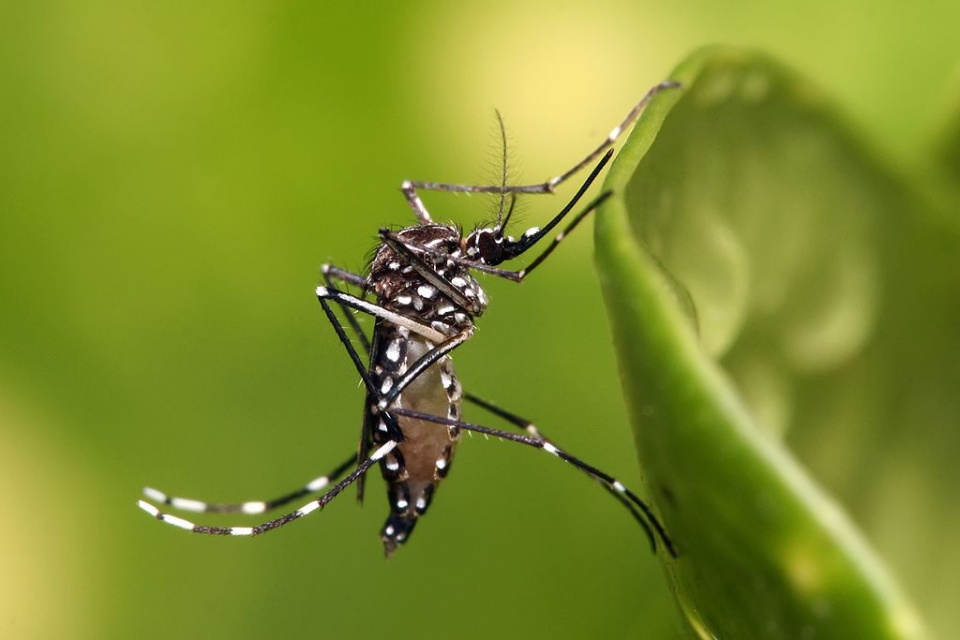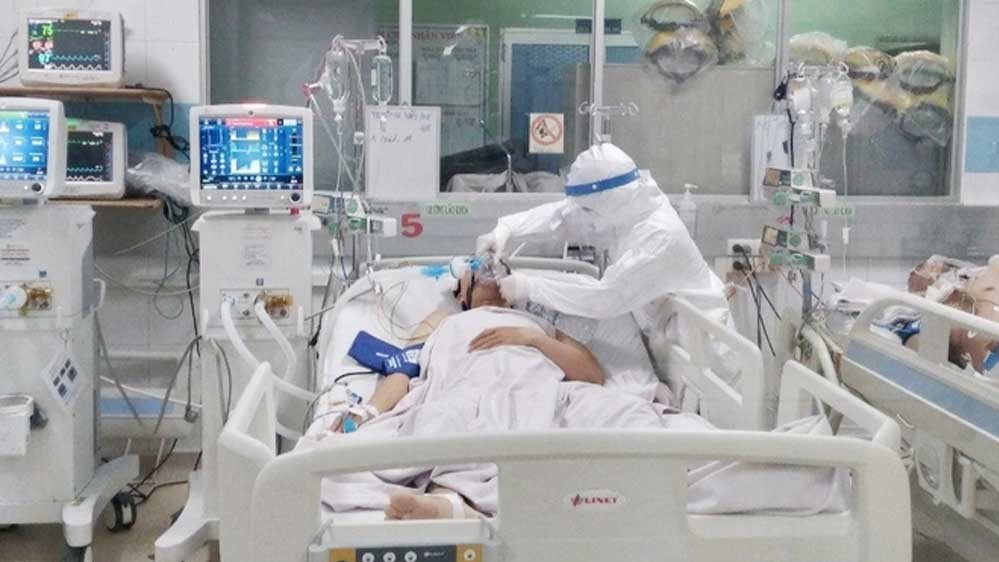
Vietnam: Dengue cases increase 11% during 6 months
Latest
| TIN LIÊN QUAN | |
| Ha Noi promotes medical, educational ties with US’s Massachusetts state | |
| ASEAN working group for health supplements meets in Da Nang | |
Mild dengue fever causes high fever, rash, and muscle and joint pain. Dengue hemorrhagic fever can cause severe bleeding, a sudden drop in blood pressure (shock) and death.
 |
| Aedes mosquito. (Photo: Wikipedia) |
Dengue hemorrhagic virus has four different serotypes DEN-1, DEN-2, DEN-3 and DEN-4. It is mainly carried and transmitted through Aedes mosquito. When a mosquito bites a person infected with a dengue virus, it becomes a carrier and then infects someone else it bites.The dengue mosquito is active during daytime, but mostly early in the morning and later in the evening. It likes to lay eggs in artificial water tanks such as aquariums, flowerpots, bonsai, and water puddle. Aedes mosquito prefers to live near human lodgings and only sucks human blood. Therefore, it is important to keep the house clean with no water drainage problems, leaving no environment for Aedes mosquito to breed.
Symptoms
Many people, especially children and teens, may experience no symptoms at all. When symptoms do occur, they usually begin 4 to 10 days after the infected mosquito bite. These most commonly include:
- Fever, up to 106 F (41 C)
- Headaches
- Muscle, bone and joint pain
- Pain behind the eyes
You might also experience:
- Widespread rash
- Nausea and vomiting
- Minor gum and nose bleed
Most people recover within a week or so. In rare cases, however, symptoms worsen and can become life-threatening with bleeding from the nose and mouth, severe abdominal pain and bleeding under the skin, which may look like bruising.
Risk factors
Living or travelling in tropical areas, especially in high-risk areas, such as Southeast Asia, Latin America and the Caribbean — increases your risk of exposure to the virus.
Prior infection with a dengue fever virus increases your risk of severe symptoms if you’re infected a second time. This is especially true for children.
Complications?
In rare cases, dengue fever can damage the lungs, liver or heart. Blood pressure can drop to dangerous levels, causing shock and, in some cases, death.
Diagnosis
Diagnosing dengue fever can be difficult, because its signs and symptoms can be easily confused with those of other diseases — such as malaria, leptospirosis and typhoid fever.
Your doctor will likely ask about your medical and travel history. Certain laboratory tests can detect evidence of the dengue viruses.
 |
| Doctor William Brian McNaull. (Photo: Family Medical Practice Hanoi) |
Treatment
No specific treatment for dengue fever exists. Your doctor may recommend that you drink plenty of fluids to avoid dehydration from vomiting and high fever.
Acetaminophen (Tylenol, others) can alleviate pain and reduce fever. Avoid pain relievers that can increase bleeding complications — such as aspirin, ibuprofen (Advil, Motrin, others) and naproxen sodium (Aleve).
If you have severe dengue fever, you may need:
- Supportive hospital care
- Intravenous (IV) fluid and electrolyte replacement
- Blood pressure monitoring
- Transfusion to replace blood loss
Prevention
A dengue fever vaccine is in development, but isn’t generally available. If you are living or traveling in tropical areas where dengue fever is common, these tips may help reduce your risk of mosquito bites:
- Stay in air-conditioned or well-screened housing: It’s particularly important to keep mosquitoes out at night.
- Reschedule outdoor activities: Avoid being outdoors at dawn, dusk and early evening, when more mosquitoes are out.
- Wear protective clothing: When you go into mosquito-infested areas, wear a long-sleeved shirt, long pants, socks and shoes.
- Use mosquito repellent: Permethrin can be applied to your clothing, shoes, camping gear and bed netting. You can also buy clothing made with permethrin already in it. For your skin, use a repellent containing at least a 10 percent concentration of DEET.
- Reduce mosquito habitat: The mosquitoes that carry the dengue virus typically live in and around houses, breeding in standing water that can collect in such things as used automobile tires. Reduce the breeding habitat to lower mosquito populations.
 | Health-related issues to be highlighted at APEC SOM3 The Ministry of Health will chair seven meetings on health-related issues during the third Asia-Pacific Economic Cooperation (APEC) Senior Officials’ Meeting (SOM3) and related meetings ... |
 | RoK investors explore chances in Can Tho’s health care, construction Officials of Can Tho city on June 23 met with a delegation from the Republic of Korea (RoK) which came to the Mekong Delta locality ... |
 | NA reviews food safety policies implementation On June 5, National Assembly deputies have discussed in details the supervision report of the implementation of law and policy on food safety in the ... |





















